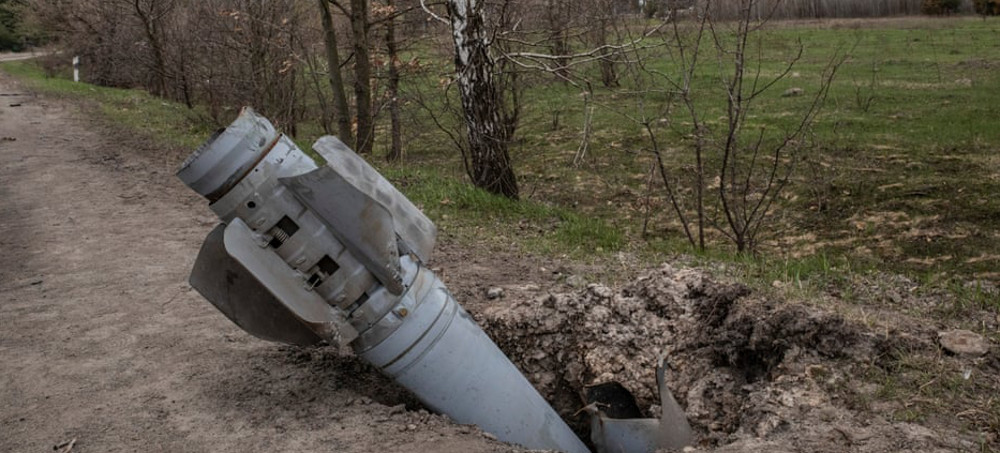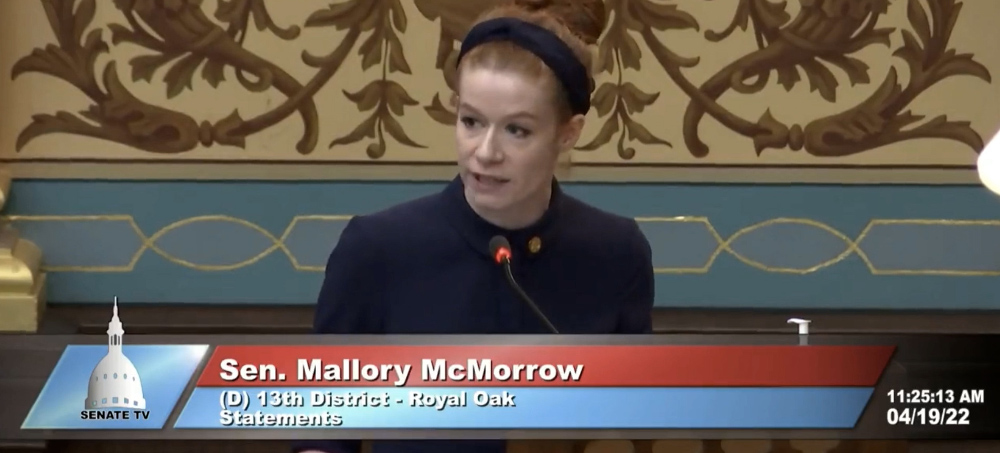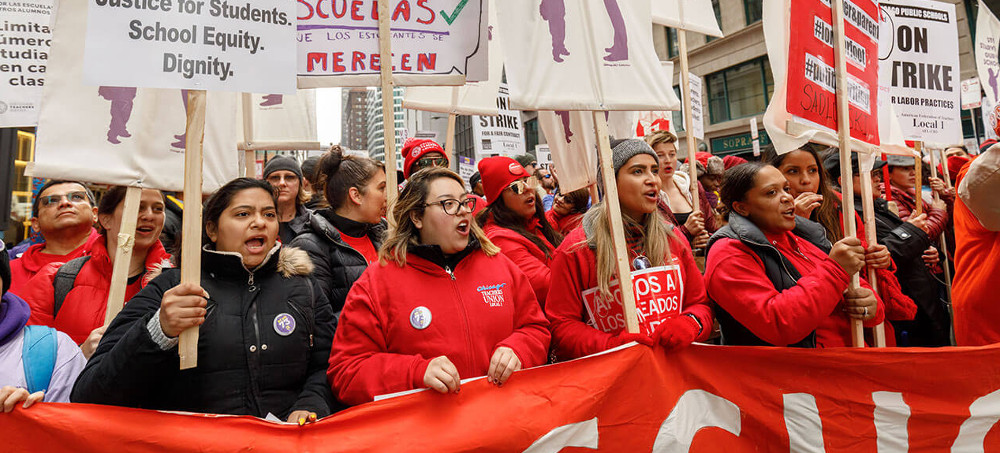A Moment to Honor Those Who Sustain RSN
The problem of people who use Reader Supported News but will not contribute is so serious that it often overshadows the efforts of those who are quite willing to help sustain the organization, and there are many.
We are a long way from finished for April. Let’s take a moment however to thank sincerely our sustainers, large and small each and every one.
In solidarity.
Marc Ash
Founder, Reader Supported News
If you would prefer to send a check:
Reader Supported News
PO Box 2043 / Citrus Heights, CA 95611
Follow us on facebook and twitter!
Live on the homepage now!
Reader Supported News
Writing a draft for history
Oftentimes, we try to pose questions in this newsletter as a way to share our perspectives and encourage community engagement. Today, however, we are mixing it up and trying something a bit different. Actually it’s a first at Steady: a contest (of sorts).
Hopefully you will find this exercise interesting, or even fun (by some tenuous definition of the word). Ultimately, however, this contest is about something deadly serious: the future of our democracy.
Naturally, we have written a lot in Steady about the events of January 6, what led to that day, and how it continues to inflect, inflame, and undermine the health, steadiness, and security of our political system.
When we talk about “January 6,” we are really using shorthand for a movement that was months, if not years, in the making. It’s similar to how “Watergate” became a stand-in for a vast criminal conspiracy run out of the Oval Office.
The events of 1/6, and all that led up to them and have transpired since, involve a president, his family, allies in Congress, and even the wife of a Supreme Court justice. They involve a vice president, the role of the press, and the judicial system. Books have already been written about that day, and likely countless pages will follow in the years ahead.
This is all important. We need to root out the details, wherever and whatever they may be. We need to be complete and thorough in telling the story of what happened and hopefully in holding those responsible accountable.
But there is another challenge with a story this sweeping, especially one that continues to unfold. The final chapters cannot be written until we know what happens next, including in upcoming elections.
Consequently, the voting public needs to have a clear and succinct sense of what the story of 1/6 is to help them weigh their ballot choices. Messaging is of vital importance. This is not to say that most or even many who support Trump and his enablers will be swayed. But some might, perhaps enough to make the difference between who gets elected and what happens to American democracy.
So with all of this as prelude, here’s the challenge:
Using no more than 75 words (succinctness is key), explain what happened on 1/6. You can paint as broad or as narrow a picture as you want. You can mention individuals by name or keep it general. The goal is to express as much of the story in as compelling and clear a way as possible. This is about clarity, urgency, and a fidelity to the facts. It should be about explaining to a fair-minded person what happened and why it is important.
For those who want to submit an entry (and we encourage all of you to do so), please add it to the comments section. And for everyone else, we encourage you to click on the little heart button to like your favorite submissions. Feel free to share this post with others outside the Steady community so we can hear their perspectives, too.
We are not sure what our next steps will be for this challenge; we just thought we would try something new. We have been so impressed whenever we hear from you. We may be biased, but we think the Steady community is among the most thoughtful, caring, and wise online. We’re eager to read your ideas.
 A Russian rocket carrying cluster munition that landed in the countryside near Hostomel. (photo: Alessio Mamo/Guardian UK)
A Russian rocket carrying cluster munition that landed in the countryside near Hostomel. (photo: Alessio Mamo/Guardian UK)
 An Amazon distribution center was heavily damaged after a strong thunderstorm moved through the area Friday, Dec. 10, 2021, in Edwardsville, Ill. (photo: Jeff Roberson/AP)
An Amazon distribution center was heavily damaged after a strong thunderstorm moved through the area Friday, Dec. 10, 2021, in Edwardsville, Ill. (photo: Jeff Roberson/AP)
 Michigan state Sen. Mallory McMorrow (D) on April 19, decried the unfounded "pedophile" and "groomer" allegations made against her in a fundraising email by fellow state Sen. Lana Theis (R). (video still: Michigan Senate)
Michigan state Sen. Mallory McMorrow (D) on April 19, decried the unfounded "pedophile" and "groomer" allegations made against her in a fundraising email by fellow state Sen. Lana Theis (R). (video still: Michigan Senate)
 SEIU members and Chicago Teachers Union members protest during a rally and march on the first day of a teacher strike, Oct. 17, 2019, Chicago, IL. (photo: Shutterstock)
SEIU members and Chicago Teachers Union members protest during a rally and march on the first day of a teacher strike, Oct. 17, 2019, Chicago, IL. (photo: Shutterstock)
 The administration said in March it would bring up to 100,000 Ukrainians fleeing war to the U.S. (photo: Getty)
The administration said in March it would bring up to 100,000 Ukrainians fleeing war to the U.S. (photo: Getty)
 Trump supporters in Pittsburgh. (photo: Megan Handel/ChimeIn)
Trump supporters in Pittsburgh. (photo: Megan Handel/ChimeIn)
Now, a study published in Global Environmental Politics this month shows that the issue is much larger than a few high-profile leaders. The researchers, from the Universities of Sussex and Warwick in the UK, found that the influence of a right-wing populist party can reduce a country’s climate policy score by nearly 25 percent.
“Conventional centre-right political parties have always been more reluctant to adopt strong climate policies, but the rise of right-wing populist parties and movements represents a threat of a different order,” study co-author Dr. Matthew Lockwood, senior lecturer in Energy Policy in the Science Policy Research Unit (SPRU) at the University of Sussex Business School and co-director of the Sussex Energy Group, said in a press release.
The study authors focused on the climate and renewable energy policies of more than 25 countries, The Guardian reported. All the countries were members of the Organisation for Economic Co-operation and Development (OECD), and the researchers looked at their policies between 2007 and 2018, the Independent reported. The study used a quantitative analysis to determine how the presence of right-wing populist parties in the legislative and executive branches of the countries impacted their climate and renewable energy polices.
What they found was that the influence of center-left parties increased a country’s climate-policy score by around 22 percent above average, while the influence of right-wing populist parties decreased it by 24 percent, according to the press release.
How much influence a party can have on climate policy is partly determined by what system of government a country has, however. The study looked at both simple majoritarian systems like the U.S. and proportional representation systems. In proportional representation systems, several people are elected per legislative district, and their party affiliation is determined proportionally based on relative vote share, as Fair Vote explained.
Right-wing populist parties can do the most damage to a country’s climate agenda if they capture the executive and all the cabinet seats in a majoritarian system, as Trump and his administration managed to do in the U.S. In this scenario, they can decrease a country’s climate policy score by 58 percent. However, these parties have less impact in a proportional representation system, because they tend to enter as junior members in a governing coalition. Further, right-wing populist parties were not able to significantly influence the climate policy in EU countries, likely because much of this policy is crafted by the bloc as a whole.
“Our paper provides some of the first quantitative evidence on how right-wing populism is negatively associated with progress on climate policy, at least among OECD countries. Interestingly, membership of the EU and proportional representation rules seem to mitigate this effect,” study co-author and University of Warwick economics professor Ben Lockwood said in the press release.
Overall, the study authors found that the influence of right-wing populist parties did not influence renewable energy policy.
The study authors also looked towards the future, and warned that right-wing populist parties could focus on climate policy instead of other issues like immigration as energy prices continue to climb in the wake of Russia’s invasion of Ukraine.
“The thing about rightwing populist parties is they tend to be very reactive to crisis,” Matthew Lockwood told The Guardian. “In Europe, a lot of that has been on immigration, and in the UK it has been Brexit. And these issues have gone off the boil a bit so the people who were pushing for Brexit are now in the net zero scrutiny group. It’s the same people reacting to a crisis but now pushing against climate action.”
Special Coverage: Ukraine, A Historic Resistance
READ MORE
Follow us on facebook and twitter!
PO Box 2043 / Citrus Heights, CA 95611



No comments:
Post a Comment
Note: Only a member of this blog may post a comment.